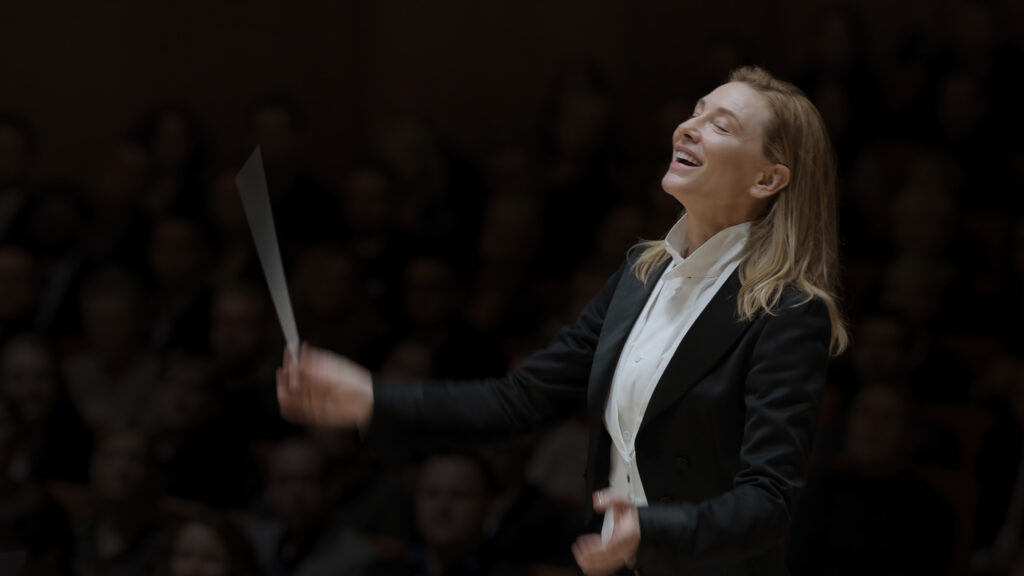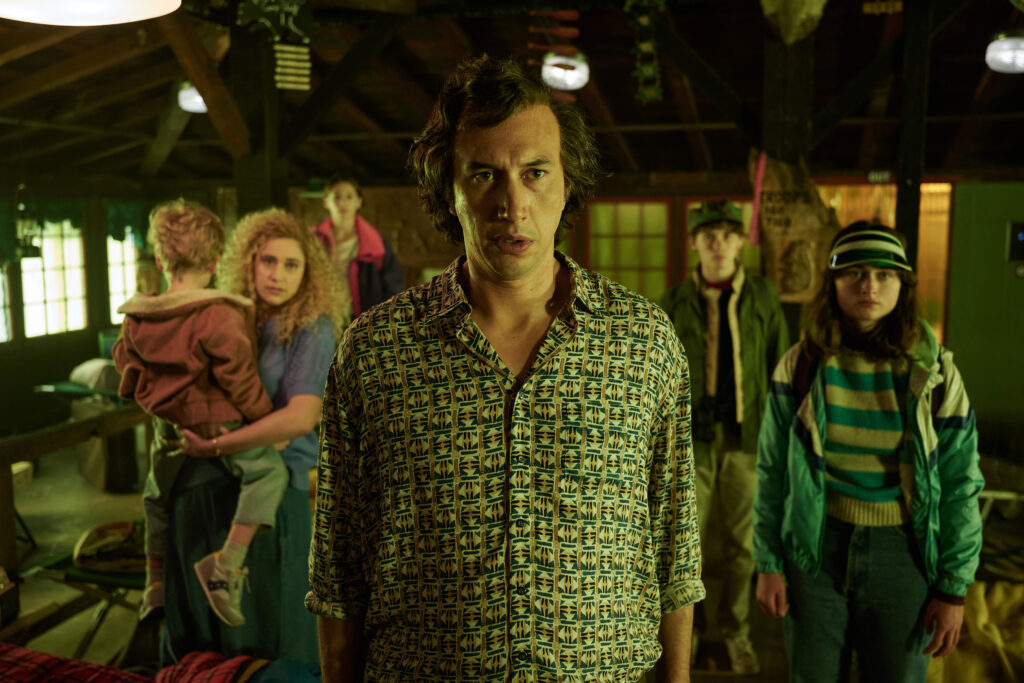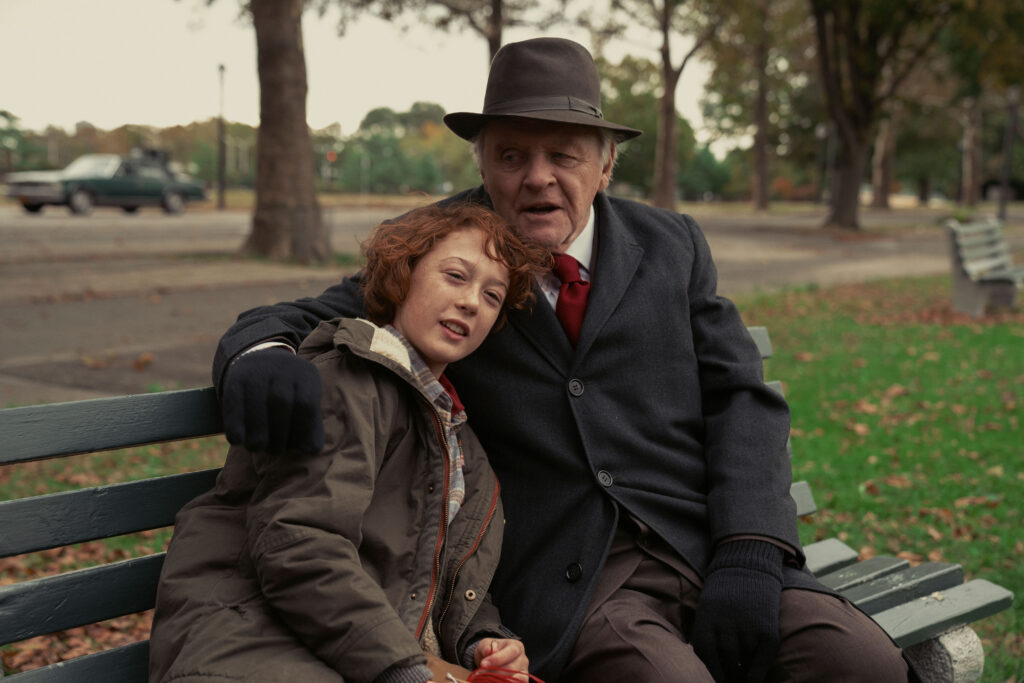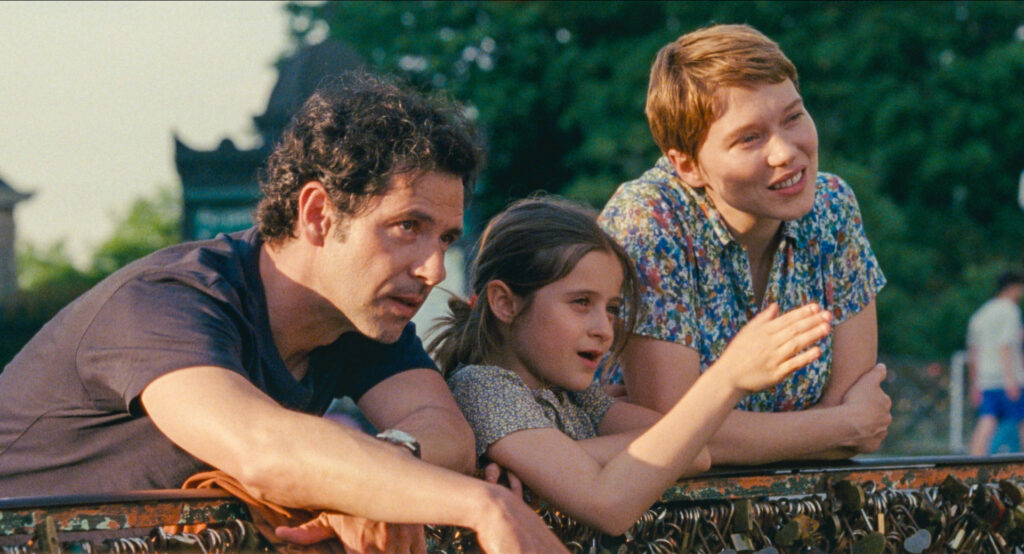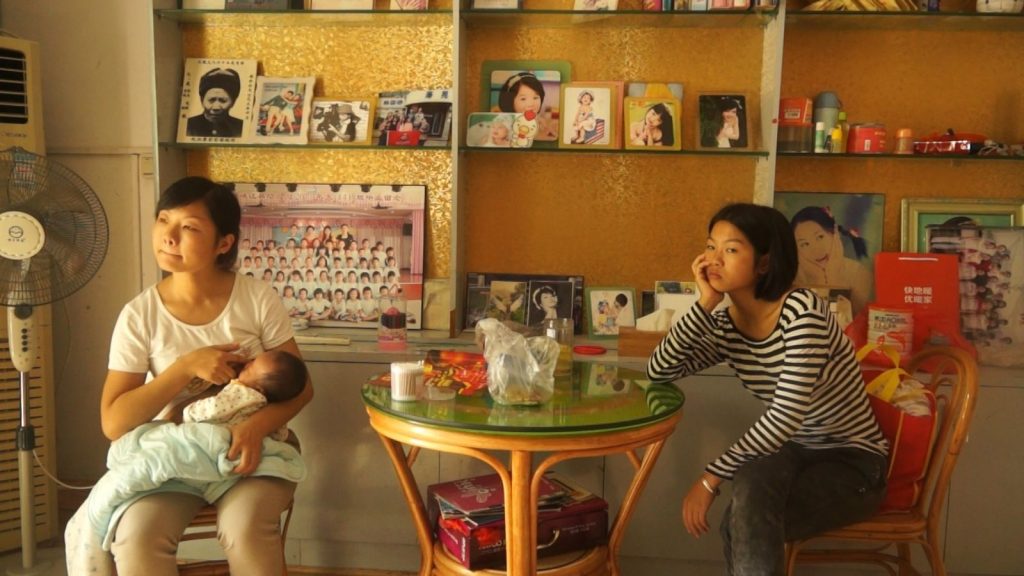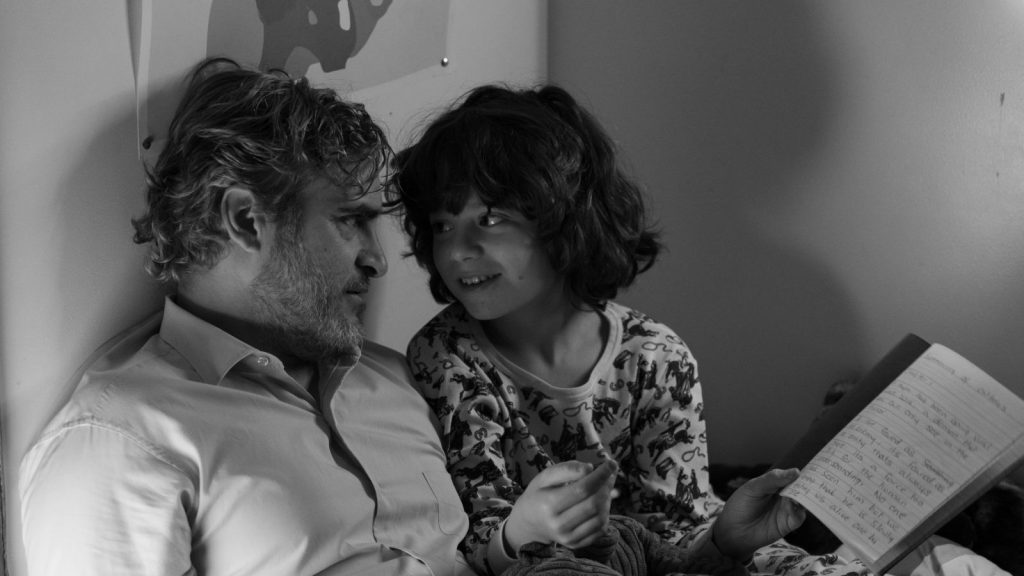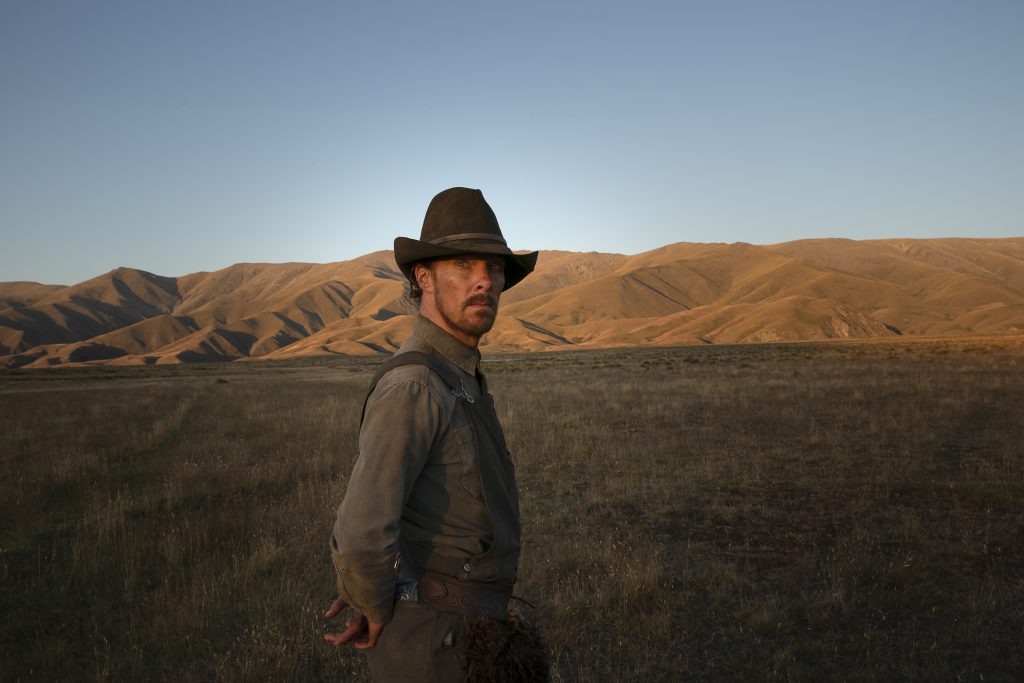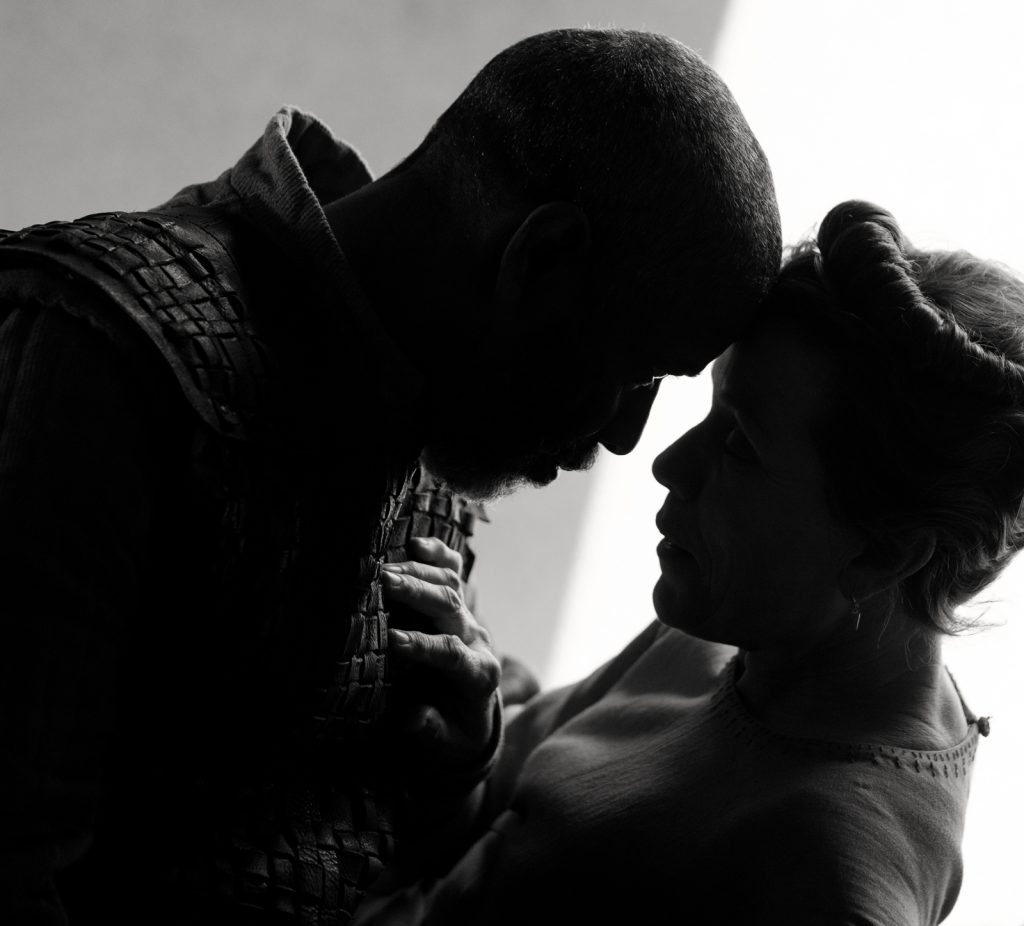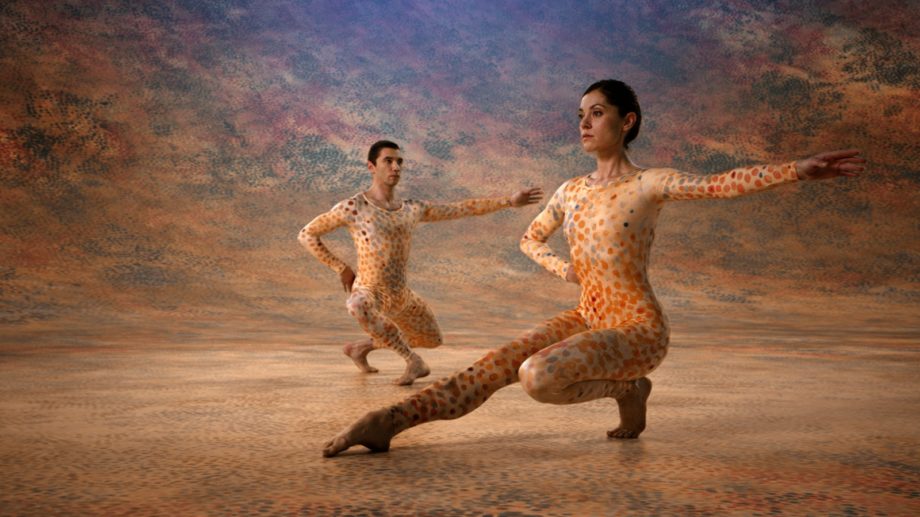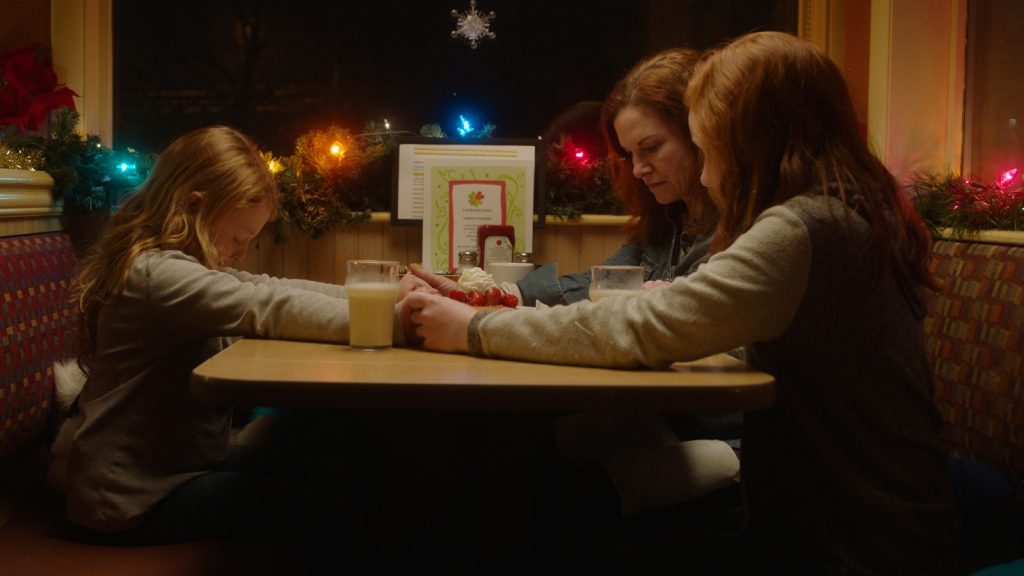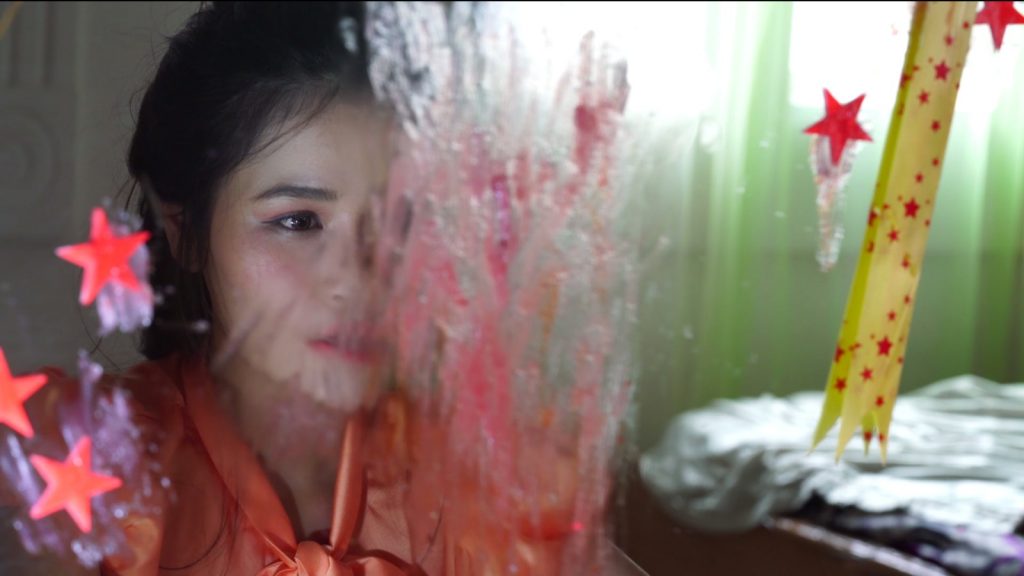August 8, 2023
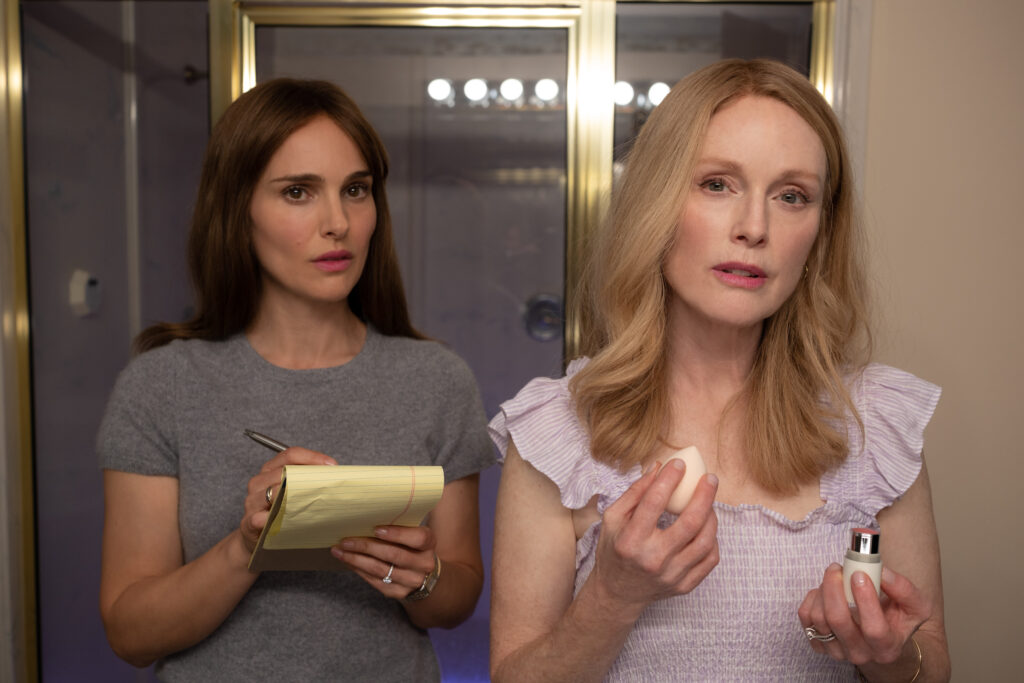
The following is a press release from Film at Lincoln Center:
Film at Lincoln Center (FLC) announces the 32 films that comprise the Main Slate of the 61st New York Film Festival (NYFF), taking place September 29–October 15 at Lincoln Center and in venues across the city.
Secure your seats with Festival Passes, limited quantities on sale now. Single tickets go on sale September 19 at noon ET.
“The unsettled state of the industry is an unavoidable talking point these days, but my hope is that our festival, as it has done through its 61-year history, will serve as a reminder that the art of cinema is in robust health,” said Dennis Lim, Artistic Director of the New York Film Festival. “The filmmakers in this year’s Main Slate are grappling with eternal questions—about how movies relate to the world, about what it means to make art from life, about the most interesting ways to approach the contemporary moment and the historical past—and the answers they have proposed are thrilling in their variety, ingenuity, and urgency. We can’t wait for our audience, so vital to the festival experience, to discover these 32 new films.”
This year’s Main Slate showcases films produced in 18 different countries, featuring new titles from renowned auteurs, exceptional work from returning NYFF directors as well as those making their NYFF debut, and celebrated films from festivals worldwide including Cannes prizewinners: Justine Triet’s Anatomy of a Fall; Jonathan Glazer’s The Zone of Interest; Wim Wenders’s Perfect Days; Nuri Bilge Ceylan’s About Dry Grasses; and Aki Kaurismäki’s Fallen Leaves. At the 73rd Berlin International Film Festival, Angela Schanelec’s Music was awarded the Silver Bear for Best Screenplay and Bas Devos’s Here was awarded best film in the Encounters section and the FIPRESCI prize.
Appearing in the NYFF Main Slate for the first time are Annie Baker, Bas Devos, Felipe Gálvez, Jonathan Glazer, Andrew Haigh, Raven Jackson (an NYFF57 FLC Artists Academy alum), Michael Mann, Rodrigo Moreno, Paul B. Preciado, Wang Bing, and Zhang Lu; additional returning NYFF filmmakers include Lisandro Alonso (FLC 2014 Filmmaker in Residence), Marco Bellocchio, Bertrand Bonello, Catherine Breillat, Sofia Coppola, Víctor Erice, Ryûsuke Hamaguchi, Agnieszka Holland, Hong Sangsoo, Radu Jude, Yorgos Lanthimos, Kleber Mendonça Filho, Martín Rejtman, and Alice Rohrwacher (FLC 2016 Filmmaker in Residence).
A special addition to this year’s Main Slate is the North American premiere of a newly unearthed and restored short directed by legendary filmmaker Agnès Varda and featuring Pier Paolo Pasolini while both were in town for the 4th New York Film Festival in 1966. It will precede two Main Slate features: La Chimera and Pictures of Ghosts.
As previously announced, the Opening Night selection is Todd Haynes’s May December; Sofia Coppola’s Priscilla is the Centerpiece; and Michael Mann’s Ferrari will close NYFF61. Currents, Revivals, Spotlight, and Talks sections will be announced in the coming weeks—sign up for NYFF updates for the latest news.
All NYFF61 documentaries are presented by HBO®.
The New York Film Festival will offer festival screenings in all five boroughs of New York City in partnership with Alamo Drafthouse Cinema (Staten Island), BAM (Brooklyn Academy of Music) (Brooklyn), the Bronx Museum of the Arts (Bronx), Maysles Documentary Center in Harlem (Manhattan), and the Museum of the Moving Image (Queens). Each venue will present a selection of films throughout the festival; a complete list of films and showtimes will be announced later this month.
The NYFF Main Slate selection committee, chaired by Dennis Lim, also includes Florence Almozini, Justin Chang, K. Austin Collins, and Rachel Rosen.
Presented by Film at Lincoln Center, the New York Film Festival highlights the best in world cinema and takes place September 29–October 15, 2023. An annual bellwether of the state of cinema that has shaped film culture since 1963, the festival continues an enduring tradition of introducing audiences to bold and remarkable works from celebrated filmmakers as well as fresh new talent.
Secure your seats with Festival Passes, limited quantities on sale now with discounts through August 17. NYFF61 single tickets will go on sale to the general public on Tuesday, September 19 at noon ET, with pre-sale access for FLC Members and Pass holders prior to this date. Become an FLC Member by August 15 to secure pre-sale access.
61st New York Film Festival Main Slate
Opening Night
May December
Dir. Todd Haynes
Centerpiece
Priscilla
Dir. Sofia Coppola
Closing Night
Ferrari
Dir. Michael Mann
About Dry Grasses
Dir. Nuri Bilge Ceylan
All Dirt Roads Taste of Salt
Dir. Raven Jackson
All of Us Strangers
Dir. Andrew Haigh
Anatomy of a Fall
Dir. Justine Triet
The Beast
Dir. Bertrand Bonello
La Chimera
Dir. Alice Rohrwacher
Close Your Eyes
Dir. Víctor Erice
The Delinquents
Dir. Rodrigo Moreno
Do Not Expect Too Much from the End of the World
Dir. Radu Jude
Eureka
Dir. Lisandro Alonso
Evil Does Not Exist
Dir. Ryûsuke Hamaguchi
Fallen Leaves
Dir. Aki Kaurismäki
Green Border
Dir. Agnieszka Holland
Here
Dir. Bas Devos
In Our Day
Dir. Hong Sangsoo
In Water
Dir. Hong Sangsoo
Janet Planet
Dir. Annie Baker
Kidnapped
Dir. Marco Bellocchio
Last Summer
Dir. Catherine Breillat
Music
Dir. Angela Schanelec
Orlando, My Political Biography
Dir. Paul B. Preciado
Perfect Days
Dir. Wim Wenders
Pictures of Ghosts
Dir. Kleber Mendonça Filho
Poor Things
Dir. Yorgos Lanthimos
La Práctica
Dir. Martín Rejtman
The Settlers
Dir. Felipe Gálvez
The Shadowless Tower
Dir. Zhang Lu
Youth (Spring)
Dir. Wang Bing
The Zone of Interest
Dir. Jonathan Glazer
61st New York Film Festival Main Slate Films & Descriptions
Opening Night
May December
Todd Haynes, 2023, U.S., 113m
North American Premiere
Elizabeth (Natalie Portman), a popular television star, has arrived in a tight-knit island community in Savannah. Here, she will be doing intimate research for a new part, ingratiating herself into the lives of Gracie (Julianne Moore), whom she’ll be playing on-screen, and her much younger husband, Joe (Charles Melton), to better understand the psychology and circumstances that more than 20 years ago made them notorious tabloid figures. As Elizabeth attempts to get closer to the family, the uncomfortable facts of their scandal unfurl, causing difficult, long-dormant emotions to resurface. From the sensational premise of first-time screenwriter Samy Burch’s brilliantly subtle script, Todd Haynes (Safe; Carol, NYFF53) has constructed an American tale of astonishing richness and depth, which touches the pressure and pleasure points of a culture obsessed equally with celebrity and trauma. It’s a feat of storytelling and pinpoint-precise tone that is shrewd in its wicked embrace of melodrama while also genuinely moving in its humane treatment of tricky subject matter. Boasting a trio of bravura, mercurial performances by Moore, Portman, and Melton, May December is a film about human exploitation, the elusive nature of performance, and the slipperiness of truth that confirms Todd Haynes’s status as one of our consummate movie artists. A Netflix release.
Centerpiece
Priscilla
Sofia Coppola, 2023, U.S., 110m
North American Premiere
Never has there been a more obsessed-over American pop icon than Elvis Presley, yet no one knew him more tenderly during his superstar years than Priscilla Ann Wagner, whose own story as Elvis’s romantic partner and only wife has rarely been told from her perspective. Director Sofia Coppola, who in her remarkable filmography has so often returned to intimate portraits of women living complicated lives behind closed doors, has found a subject exquisitely tailored to her interests. As portrayed with extraordinary poise and strength by Cailee Spaeny, Priscilla finally becomes the center of her narrative. Coppola follows her love affair with Elvis (an equally revelatory, larger-than-life Jacob Elordi), from her early years as a teenage army brat stationed in West Germany to her surreal arrival at Graceland, which becomes both her home and prison. With her customarily precise attention to texture and detail, Coppola has created one of her most stirring, vivid films, a tribute to a woman who was living in the public eye before she had truly experienced the world. Featuring evocative, moody cinematography by Philippe Le Sourd and original music by Phoenix. An A24 release.
Closing Night
Ferrari
Michael Mann, 2023, U.S., 125m
North American Premiere
Michael Mann (The Insider) brings his astonishing command of technique and storytelling to bear on this emotional, elegantly crafted dramatization of the life of the legendary car manufacturer and entrepreneur Enzo Ferrari at a professional and personal fulcrum. It’s 1957, and the marriage of Enzo (Adam Driver, in an artfully internalized performance) and Laura (Penélope Cruz, a ferocious revelation) has begun to irrevocably fracture as a result of his philandering and the tragic recent death of their young son. Their unsettled domestic world is on a collision course with his work life as Enzo faces a pair of major turning points: financial pressure to increase productivity, which means going against his long-standing desire to only produce race cars, and preparations for the treacherous cross-country open-road Mille Miglia race. Dovetailing these narrative strands, Mann effortlessly shifts gears between elegiac and spectacular, climaxing in an exhilarating and terrifying race across the Northern Italian landscape—a visual and aural wonder of revving machinery against bucolic splendor—that ranks with the greatest set pieces of Mann’s career. Aided by a magnificent cast, which also includes Shailene Woodley, Gabriel Leone, Patrick Dempsey, and Jack O’Connell, and glorious on-location shooting in Ferrari’s hometown of Modena, Mann has constructed a marvel of classical cinema. A NEON release.
About Dry Grasses
Nuri Bilge Ceylan, 2023, Turkey, 197m
Turkish with English subtitles
U.S. Premiere
In a village nestled within the wintry landscape of the East Anatolia region of Turkey, an art teacher named Samet (Deniz Celiloglu) is struggling through what he hopes to be his final year at an elementary school. Already tiring of the unforgiving environment, where he has been assigned by the government’s public education system, Samet is further disillusioned and frustrated after a young girl in his class, Sevim, appears to accuse him of inappropriate behavior. The only light on the horizon for Samet is his growing friendship with—and clear attraction to—a teacher from a nearby school, Nuray (Merve Dizdar), a sharp, politically engaged woman unafraid to put the self-involved Samet in his place for his general apathy and narcissism. The latest deeply philosophical drama from Nuri Bilge Ceylan (Once Upon a Time in Anatolia, NYFF49) is a work of elegant, novelistic filmmaking, rigorously unpacking questions of belief versus action, the tangible versus the enigmatic, and who we wish to be versus how we live. A centerpiece conversation between Samet and Nuray—capped off by a provocative metacinematic flourish—ranks with Ceylan’s greatest sequences, and Dizdar, who won the Best Actress prize at this year’s Cannes Film Festival, commands every second she’s on screen. A Sideshow/Janus Films release.
All Dirt Roads Taste of Salt
Raven Jackson, 2023, U.S., 97m
One of the most visually striking, profoundly moving American movie making debuts in years, Raven Jackson’s All Dirt Roads Taste of Salt is an arresting immersion into a young woman’s inner world, filmed and edited with an extraordinary tactility and attention to the tiniest detail. This impressionistic journey skips ahead and back through decades to tell the story of Mack, whose upbringing in rural Mississippi is touched by grace, dotted with heartbreak, and always carried aloft by the surrounding natural beauty. As she ages, she loses loved ones and gains others, while making decisions that change the course of her life, and that of her beloved sister. Relying on sounds and images to tell her story, and employing minimal dialogue, Jackson has created something breathtakingly quiet and ultimately transporting—a spiritual tribute to the moments, feelings, and connections that make a life. An A24 release.
All of Us Strangers
Andrew Haigh, 2023, U.K., 105m
British director Andrew Haigh, whose 2011 feature breakthrough Weekend is among the most widely beloved queer romances of the 21st century, has returned with an expertly modulated, emotionally overwhelming love story suspended in a metaphysical realm. Adam (Andrew Scott), a melancholy screenwriter living alone in a newly built, nearly empty high-rise on the outskirts of London, meets and tentatively begins a passionate relationship with the more extroverted Harry (Paul Mescal), his apparent only neighbor in the building. At the same time, Adam begins another, parallel journey, venturing out to the city’s suburbs to confront his troubled past and perhaps reconcile his unsettled present. Adapted from a 1987 novel by Taichi Yamada, All of Us Strangers is uncommonly perceptive about the desires, fears, and traumas of a specific generation of gay men while extending into the universal—or perhaps the cosmic—in its depiction of familial love and estrangement. And in a quartet of superb performances, Scott, Mescal, Jamie Bell, and Claire Foy pierce straight to the heart. A Searchlight Pictures release.
Anatomy of a Fall
Justine Triet, 2023, France, 150m
French and English with English subtitles
The winner of this year’s Palme d’Or at the Cannes Film Festival, Justine Triet’s drama is a riveting procedural and a delicate inquiry into the impossibility of an ultimate truth in human relationships. When the husband of famous novelist Sandra Voyter (played by Toni Erdmann’s Sandra Hüller) is found dead on the ground outside their chalet in the French Alps, authorities suspect that she might have been responsible, as the impact and position of his body suggest a push rather than a fall. This leads to a murder trial that puts every aspect of their marriage under impossible scrutiny, and whose outcome might hinge on the perspective of their vision-impaired 11-year-old son. Triet’s fiercely intelligent, emotionally devastating film dissects the ways we create subjective narratives for ourselves and others and questions the insufficiency of language to describe the essential mysteries each of us possesses. At its core is the brilliant Hüller, whose Sandra is articulate, open, and utterly inscrutable. A NEON release.
The Beast
Bertrand Bonello, 2023, France, 146m
English and French with English subtitles
U.S. Premiere
A filmmaker consistently unafraid to wade through the weird miasma of contemporary life, Bertrand Bonello (Nocturama; Coma, NYFF60) works from the outside in, dramatizing the psychological toll of the political and cultural world around us. Here he has created a dynamic and disturbing parable that jumps between three different time periods (1910, 2014, and 2044) to diagnose our acute—and perhaps eternal—feelings of estrangement and alienation. Using Henry James’s haunting 1903 short story “The Beast in the Jungle” as his film’s provocative inspiration, Bonello tells the story of a young woman (Léa Seydoux) who undergoes a surgical process to have her DNA—and therefore memories of all her past lives—removed. In so doing, she realizes her fate has long been intertwined, for better and worse, with a young man (George MacKay). Touching on modern anxieties of AI and incel culture, which may recur throughout history as commonly as love and hate, The Beast, like all good science-fiction, asks essential questions about the ever-shifting status of humanity itself.
La Chimera
Alice Rohrwacher, 2023, Italy, 135m
Italian with English subtitles
With her customarily bewitching mixture of earthiness and magical realism, Alice Rohrwacher (Happy as Lazzaro, NYFF56) conjures a marvelous entertainment set in a rural Italy eternally caught between the ancient and the modern. Josh O’Connor (The Crown) stars as Arthur, a ne’er-do well Englishman, handsomely rumpled and recently out of prison, who returns to a rural town in central Italy where he hesitantly reconnects with a ragtag group of tombaroli (tomb raiders), for whom he uses his uncanny powers of divination to locate graves that date back to the Etruscan period and teem with antiquities of immense value to collectors and museums. Yet the melancholy Arthur has other ghosts on his mind, including his long-lost love Beniamina, who haunts his memory like her own ghostly civilization. Featuring gorgeous rough-hewn textures from the great cinematographer Hélène Louvart and outstanding supporting work from Isabella Rossellini, Carol Duarte, and Alba Rohrwacher, La Chimera is a dreamlike descent into a majestically tattered world right beneath our own. A NEON release.
Close Your Eyes
Víctor Erice, 2023, Spain, 169m
Spanish with English subtitles
U.S. Premiere
Spanish director Víctor Erice’s fourth film in 50 years, Close Your Eyes is the culmination of one of the most legendary careers in modern cinema, following the masterpieces The Spirit of the Beehive, El Sur, and The Quince Tree Sun (NYFF30). In this elegiac personal epic about time, memory, and, of course, the movies, an aging filmmaker named Miguel (Manolo Solo) is reluctantly pulled back into a decades-old mystery connected to his final, unfinished work, titled The Farewell Gaze. During production, his leading actor and close friend, Julio (Jose Coronado), vanished and was never heard from again; in the process of trying to track him down so many years later, Miguel must come to terms with his own past, his present life, and the irrevocably changed processes of his art form. Featuring captivating performances from a cast that also includes Ana Torrent (Beehive’s unforgettable child star) in a moving role as Julio’s grown daughter, Close Your Eyes is a poignant, summative work that finds original ways to remind viewers of the moving image’s ability to reach across time.
The Delinquents
Rodrigo Moreno, 2023, Argentina, 183m
Spanish with English subtitles
U.S. Premiere
A heist picture unlike any other, The Delinquents upends genre expectations with a gentle yet deftly constructed existentialist fable. Timid bank clerk Morán (Daniel Elías), fed up with his dead-end middle-management job, decides one day to simply walk into the vault, pack a bag with enough cash to cover his salary until retirement age, and saunter out. Knowing he has been inevitably caught on security camera, Morán plans on turning himself in, but not before passing the stash along to his coworker Román (Esteban Bigliardi), now an accomplice who agrees to hold onto the money until Morán gets out of prison. From this gripping premise, Argentinean writer-director Rodrigo Moreno spins an endlessly surprising tale that moves into increasingly idyllic territory, adding layer upon layer to the twinned stories of these two men’s lives, and inquiring what it means to be free in a world of monetary satisfaction. A MUBI release.
Do Not Expect Too Much from the End of the World
Radu Jude, 2023, Romania, 163m
Romanian with English subtitles
U.S. Premiere
As he proved with his scandalous, scathing political comedy Bad Luck Banging or Loony Porn (NYFF59), Romanian filmmaker Radu Jude is among the most radical filmmakers working today and one of the few unafraid to diagnose the absurd evils and moral blind spots that make contemporary living what it—unfortunately—is. In his latest film, Jude again explodes conventional boundaries of narrative and form, this time charting a lacerating course through one day in the life of a severely overworked film production assistant, Angela, who drives around Bucharest on her latest gig: filming work accident victims auditioning to be in a safety equipment video for a German multinational corporation. At the same time, the sleep-deprived Angela upkeeps her own side project—a face-filtered, trash-talking, right-wing alter ego with more than 20,000 viewers that serves as the film’s perverse Greek chorus. Intercutting all this with footage from Romanian director Lucian Bratu’s feminist 1981 film Angela Moves On, following the travels of a female cab driver around the city’s same sights and locations, Jude initiates a conversation with his country’s past and present, while engaging in a meta-commentary about the ability of the captured image to exploit, and to contort the truth.
Eureka
Lisandro Alonso, 2023, Argentina/France/Portugal, 146m
English, Portuguese, and Lakota with English subtitles
North American Premiere
The protean Argentinean director Lisandro Alonso (La Libertad, NYFF39; Jauja, NYFF52) continues to shapeshift, delight, and challenge with his marvelous and immersive new film, which takes the viewer on an unexpected journey through three stories set in wildly different terrain, each of them reflecting lives haunted by the specter of colonialist violence. In the first, Viggo Mortensen and Chiara Mastroianni guest-star in a black-and-white neo-Western pastiche following a taciturn gunslinger seeking revenge in a lawless frontier town. In the second section, in a different kind of law-and-order narrative, set during the present day in the Pine Ridge Reservation in South Dakota, we accompany a Native American cop (Alaina Clifford) on her nighttime patrols, revealing a community troubled by addiction and poverty, but also, because of the cop’s good-hearted basketball coach niece (Sadie Lapointe), touched by transcendence. Finally, the film travels to the magnificent Brazilian rainforest of the 1970s, where Indigenous workers pan for gold while articulating their dream lives. Cleverly transitioning between segments without hand-holding the viewer, Alonso has created an improbably unified aesthetic experience that leaves it up to us to make the connections among its transient worlds.
Evil Does Not Exist
Ryûsuke Hamaguchi, 2023, Japan, 105m
Japanese with English subtitles
U.S. Premiere
Deep in the forest of the small rural village Harasawa, single parent Takumi lives with his young daughter, Hana, and takes care of odd jobs for locals, chopping wood and hauling pristine well water. The overpowering serenity of this untouched land of mountains and lakes, where deer peacefully roam free, is about to be disrupted by the imminent arrival of the Tokyo company Playmode, which is ready to start construction on a glamping site for city tourists—a plan, which Takumi and his neighbors discover, that will have dire consequences for the ecological health and cleanliness of their community. The potent and foreboding new film from Oscar-winning director Ryûsuke Hamaguchi (Drive My Car and Wheel of Fortune and Fantasy, both NYFF59) is a haunting, entirely unexpected cinematic experience that reconstitutes the boundaries of the ecopolitical thriller. Intensified by a rapturous, ominous score by Eiko Ishibashi, this mesmeric journey diverges from country-vs-city themes to straddle the line between the earthy and the metaphysical. A Sideshow/Janus Films release.
Fallen Leaves
Aki Kaurismäki, 2023, Finland, 81m
Finnish with English subtitles
Sweet-souled in story, scalpel-sharp in filmmaking precision, this enchanting love story from Finnish virtuoso Aki Kaurismäki circles around two financially strapped Helsinkians who keep finding and losing one another in a world that seems to be falling apart. Evoking such dark-comic romances from his early career such as Shadows in Paradise and Ariel (NYFF27), the sardonic yet exquisitely melancholic Fallen Leaves devotes its wry, humane gaze to grocery clerk Ansa (Alma Pöysti) and construction laborer Holappa (Jussi Vatanen), who commence an on-again, off-again relationship of extreme tentativeness, while seeking employment and stability. As with the greatest of Kaurismäki’s films, everyday details register as grand, meaningful cinematic gestures. This filmmaker has scrupulously carved another fictive universe out of a handful of specific, vivid locations, yet Fallen Leaves very much takes place in the world we’re living in, which makes its surrender to hope all the more affecting. Winner of the Jury Prize at the 2023 Cannes Film Festival. A MUBI release.
Green Border
Agnieszka Holland, 2023, Poland/Czech Republic/France/Belgium, 146m
Polish, Arabic, English, and French with English subtitles
U.S. Premiere
A Syrian family leaves the violence of their country behind, hoping to cross from Belarus into Poland and then onto the safe haven of Sweden. But, like so many lost souls, they end up caught in a political maelstrom, demonized by the Polish government and press and used as pawns in an inhumane, deadly border game. This harrowing, urgent drama from the veteran Polish director Agnieszka Holland (Europa Europa; Spoor, NYFF55) constructs an intricate account of the contemporary global humanitarian crisis, expanding out to encompass the interconnected lives of security patrol officers, activist lawyers, and civilians who put themselves on the line for strangers. With the sobering and sometimes shocking Green Border, Holland reaffirms both her unyielding commitment to political filmmaking and the ability of immersive storytelling to illuminate the darkest corners of the world.
Here
Bas Devos, 2023, Belgium, 82m
Dutch, French, Romanian, and Mandarin with English subtitles
U.S. Premiere
Stefan, a migrant construction worker living in Brussels, is planning a trip home to his mother in Romania. In preparing for his voyage, he reconnects with local family members over gifted bowls of homemade soup, interacts with strangers, and discovers a revivifying commune with nature. This all leads him to an unexpected connection with Shuxiu, a Chinese-Belgian bryologist, who’s studying the local moss. The gradual cultivation of this friendship—beautifully performed by actors Stefan Gota and Liyo Gong—motivates this hushed, emotionally resonant film about the power of observation, of people often deemed socially invisible, and of the larger green world surrounding us. In his lovely and tranquil fourth feature, Belgian filmmaker Bas Devos (Ghost Tropic) has created a work that finds transcendence in the simplest human encounters and the most radiant of cinematic gestures. Winner of the Best Film prize in the Berlin International Film Festival’s Encounters competition. A Cinema Guild release.
In Our Day
Hong Sangsoo, 2023, South Korea, 83m
Korean with English subtitles
North American Premiere
For his 30th feature film, Hong Sangsoo has crafted a slippery yet captivating inquiry into the search for meaning, connection, and artistic satisfaction. In Our Day alternates two seemingly unrelated stories: in the first, a disillusioned former actress named Sangwon (Hong regular Kim Minhee) who has left her profession behind and is recharging at the apartment of her longtime friend Jung-soo (Song Sunmi); in the second, a middle-aged poet, Hong Uiji (Ki Joo-bong), who has become a cult figure for a new generation of young readers, is being visited by a student (Park Miso) making a documentary about him and a young man (Ha Seong-guk) drilling him with questions about the meaning of it all—which makes it difficult for the artist to refrain from drinking, even though his doctors have sworn him off alcohol. From these two disparate strands, Hong delightfully evokes a world rich with enigma and possibility, in which the most seemingly minute detail (the whereabouts of a cat, the spiciness of a noodle dish) has outsized repercussions and asking life’s big questions often brings us back to square one. A Cinema Guild release.
In Water
Hong Sangsoo, 2023, South Korea, 61m
Korean with English subtitles
North American Premiere
A youthful trio has convened off-season on the desolate yet beautiful Jeju Island. The director, leading actress, and cinematographer are preparing to shoot a film, yet the subject matter remains unclear. While potential professional and romantic jealousies simmer in the background, Hong Sangsoo instead prioritizes the contingencies of artmaking and inspiration, as the film-within-the-film’s first-time director (Shin Seokho) gradually discovers the melancholy centerpiece of his self-funded passion project. Characteristically small yet enormously touching, Hong’s latest treasure happens upon a simple aesthetic conceit that pays dividends: the image is mostly out of focus, lending each frame a delicate, smudgy impressionistic quality. As the young director’s movie gradually makes itself clear on screen, so does Hong’s vision of the often all-consuming pursuit for artistic meaning. A Cinema Guild release.
Janet Planet
Annie Baker, 2023, U.S., 113m
It’s the summer before Lacy (Zoe Ziegler) starts sixth grade, and she is spending the lazy months with her acupuncturist mother, Janet (Julianne Nicholson), in their home in the woods. As the months drift by, the bespectacled, taciturn girl, fiercely observant, watches Janet and three enigmatic adults who drift in and out of their lives, whether romantic interests or reconnected friends. Set in 1991 rural Western Massachusetts, the superb debut film from Pulitzer Prize–winning playwright Annie Baker is a work of surreal tranquility that moves at a different, lost pace of life, and which perceives heartbreak just as Lacy is beginning to grasp the world and her place in it. Baker has created a film about a mother and daughter quite unlike any other, heightening the viewer’s senses and expressing oceans of feeling with the smallest gestures. Nicholson and Ziegler perform their roles with an inspiring lack of sentimentality, and the wondrous supporting cast includes Elias Koteas, Sophie Okonedo, and Will Patton. An A24 release.
Kidnapped
Marco Bellocchio, 2023, Italy, 134m
Italian and Hebrew with English subtitles
U.S. Premiere
In 1858 Bologna, a 6-year-old named Edgardo Mortara was seized by authorities of the papal state, taken away from his Jewish parents, and placed in the care of the Church. Believed to have been baptized in the cradle under odd circumstances, the child would be claimed as a Catholic. His mind erased of his family’s religious heritage and beliefs, Edgardo was, unbeknownst to him, at the center of an international firestorm that led directly to the Italian people’s rejection of the Pope’s rule amidst the tumultuous Risorgimento. In this sumptuously mounted film from treasured octogenarian director Marco Bellocchio, the Mortara case becomes an extraordinary, nearly operatic historical drama. Kidnapped is at once a personal, human-scale narrative of a family in crisis, following parents who will do anything to retrieve their child from the clutches of a ruthless theocratic government, and a wide-scope portrait of a country on the cusp of revolution. A Cohen Media Group release.
Last Summer
Catherine Breillat, 2023, France, 104m
French with English subtitles
U.S. Premiere
One of the world’s most consistently provocative filmmakers for nearly 50 years, Catherine Breillat proves with her incendiary, compelling new drama that she is not through toying with viewers’ comfort levels. In Last Summer, Léa Drucker stars as Anne, a lawyer who specializes in cases of sexual consent and parental custody. Seemingly happily married to kind-hearted businessman Pierre (Olivier Rabourdin) with adopted twin daughters, Anne inexplicably finds herself drawn to Pierre’s estranged 17-year-old son Théo (Samuel Kircher) after the boy returns home to live with them. Embarking on a passionate affair with the teenager, Anne all too willingly thrusts herself into a maelstrom of attraction, intimidation, and manipulation. Breillat’s incisive screenplay—cannily altered from the Danish erotic thriller Queen of Hearts on which it’s based—elegantly surveys the situation’s extreme power dynamics while giving the brilliant Drucker the chance to create a character who exists entirely within her own moral boundaries. A Sideshow/Janus Films release.
Music
Angela Schanelec, 2023, Germany/France/Greece/Serbia, 105m
Greek and English with English subtitles
U.S. Premiere
Leading contemporary German filmmaker Angela Schanelec (I Was at Home, But…, NYFF57) is singularly adept at creating dramas of unexpected catharsis via the most oblique narrative strategies. Her latest film, Music, pushes this approach to new levels of emotionality. Using abstract gestures and broad narrative ellipses, yet still managing to plumb the depths of its characters’ complicated traumas, Music tells the story of a young man and woman unknowingly united by the same violent death. Brought together by fate and horrible irony, Ion (Aliocha Schneider) and Iro (Agathe Bonitzer) first meet in prison, where he’s an inmate and she’s a guard; they kindle a romance fomented by passion for classical music and opera, followed by marriage and children. Yet as in all tragedies, the past returns to haunt them. Inspired by the Oedipus myth, Schanelec has created an alternately austere and vivid portrait of grief and redemption through art told with her distinctive compositional rigor. A Cinema Guild release.
Orlando, My Political Biography
Paul B. Preciado, 2023, France, 98m
French with English subtitles
Virginia Woolf’s 1928 novel Orlando is both historical anchor and hopeful North Star of writer and philosopher Paul B. Preciado’s first film, a sweeping yet intimate documentary that takes a panoramic look at past and present trans lives. Preciado’s literate, charming conceptual approach casts 26 trans and non-binary people as different versions and evocations of Woolf’s famous gender nonconformist, using the book as a starting point to talk about both the social and metaphorical meanings of transness and how Woolf’s reflections on the body untethered from both time and gender normativity remain radical. Fleet and visually inventive, Preciado’s film is finally a robust polemical inquiry into contemporary trans personhood and political disenfranchisement that points the way toward a possible utopia. Winner of four prizes at the Berlin International Film Festival, including the Teddy Award. A Sideshow/Janus Films release.
Perfect Days
Wim Wenders, 2023, Japan/Germany, 124m
Japanese with English subtitles
As in his finest movies, Wim Wenders (Paris, Texas, NYFF22) here locates the magnificence in the everyday, casting the incomparable Koji Yakusho as the taciturn, good-natured Hirayama, who goes about his solitary hours working as a public toilet cleaner in Tokyo. Interacting on his rounds with a variety of city denizens whose eccentricities put his gentle nature into even more delightful relief, the middle-aged Hirayama becomes the quiet hero of his own story, doing his menial work without complaint, bemused yet often enchanted at the younger folk orbiting him, and delighted by the natural wonders poking out from the corners of the always changing cityscape. Hirayama is a creature very much of the present, devoted to a daily routine that is nearly monastic—until it is disrupted by someone from his past. Working in concert with Wenders’s documentarian eye, Yakusho, who won the Best Actor award at this year’s Cannes Film Festival, makes his character’s every movement magnetic. A NEON release.
Pictures of Ghosts
Kleber Mendonça Filho, 2023, Brazil, 93m
Portuguese with English subtitles
U.S. Premiere
The life of a true cinephile is one constantly haunted by the dead, as the history of the movies is a corridor of ghosts. Brazilian filmmaker and unrepentant cinema obsessive Kleber Mendonça Filho’s new documentary serves as a poignant testament to the liminal state of movie love, telling, in three chapters, the story of his cinematic world—namely the city of Recife, where his youthful film education took place. At theaters like the Veneza and the São Luiz, Mendonça discovered a popular art form that would change his life; today, with the landscape of the city altering drastically, he surveys its empty rooms now pregnant with memories. This moving and playful film, as much about the architectural and social structures of a city as about the movies that inspire and haunt us, honors the personal spaces that are also the communal lifeblood of our urban centers. A Grasshopper Film release.
Poor Things
Yorgos Lanthimos, 2023, U.S./U.K./Ireland, 141m
In his boldest vision yet, iconoclast auteur Yorgos Lanthimos (The Lobster, NYFF53; The Favourite, NYFF56) creates an outlandish alternate 19th century on the cusp of technological breakthrough, in which a peculiar, childlike woman named Bella (Emma Stone) lives with her mysterious caretaker, the scientist and surgeon Godwin Baxter (Willem Dafoe). Violently rambunctious, with a growing and unquenchable desire for sexual gratification, Bella turns every social propriety on its head. The shocking truth about her state, soon revealed, doesn’t stop Godwin’s gentle young apprentice (Ramy Youssef) from falling in love with her. After a rakish, libertine lawyer (Mark Ruffalo) whisks her away to see the world, Bella comes to understand her place in it, allowing us to bear witness to her journey of self-actualization. At once poignant and grotesque, Poor Things, based on a 1992 novel by Alasdair Gray, is a punkish update of the Frankenstein story that becomes a deeply feminist fairy tale about women taking back control of their own bodies and minds. A Searchlight Pictures release.
La Práctica
Martín Rejtman, 2023, Argentina/Chile/Portugal, 89m
Spanish with English subtitles
North American Premiere
Leading light of the New Argentine Cinema, Martín Rejtman returns with his first film in nearly a decade (following Two Shots Fired, NYFF52), a shrewd deadpan comedy that provides further evidence that few directors are as adept at dramatizing the absurdity of the mundane. Gustavo (Esteban Bigliardi), an Argentinean yoga instructor living in Chile, has recently separated from his wife, which leaves him essentially without an apartment and complicates keeping his business afloat. Adding injury to insult, he’s dealing with a torn meniscus, a meddling mother, a new client who might be a thief and another who gets amnesia during a session. A flirtation with a former student, Laura (Camila Hirane), brings promise for the future. Directed and acted with wry precision, the entrancing La Práctica is a sardonic yet loving immersion into a world in which wellness retreats and physical and spiritual self-improvement naturally exist side-by-side with romantic and professional neuroses.
The Settlers
Felipe Gálvez, 2023, Chile, 100m
Spanish with English subtitles
A tale of brutal colonialist violence set against the sweeping, mountainous backdrop of Chile at the turn of the 20th century, Felipe Gálvez’s handsomely mounted, emotionally wrenching adventure plays off conventions of the American Western while becoming its own haunting work of cinematic historical exploration. The film follows the journey of three men—an officer of the British army, a mercenary from the American Southwest, and a Chilean mixed-race marksman and tracker to guide the two outsiders—hired by a tyrannical landowner to scout the boundaries of his vast property and execute a new trade route. The true nature of their dispatch, however, comes into focus: to rid the area of its indigenous tribes. With its evocative period setting and arresting landscapes, The Settlers is a vivid, immersive experience, featuring an indelible final passage that reminds us the past is always present. A MUBI release.
The Shadowless Tower
Zhang Lu, 2023, China, 144m
Mandarin with English subtitles
North American Premiere
A novelist and literature professor turned movie director who has been quietly building an impressive filmography for the past 20 years, the 61-year-old Zhang Lu has now constructed an elegiac film about middle-age—its confusions and complications, as well as its beauty and grace. Set in Beijing’s Xicheng district, The Shadowless Tower (its title referring to a 13th-century Buddhist temple known to locals for its odd shape and noteworthy lack of shade) follows the compelling, distinctly human rhythms of Gu Wentong (Xin Baiqing), an aging divorcé who has abandoned his love of poetry writing to become a food critic. Estranged from his disgraced father (hauntingly inhabited by legendary Fifth Generation Chinese filmmaker Tian Zhuangzhuang) and only occasionally there for his adorable young daughter, who is being watched by his sister and brother-in-law, Gu feels unmoored from life. When, on a work gig, he emotionally connects with a fiercely independent 25-year-old photographer (the marvelous Huang Yao), he suddenly finds himself confronting his unsettled past and destabilized present. Zhang strikes a delicate balance between abstract feeling and the satisfactions of storytelling in this expansive, uncommonly sensitive portrait of contemporary living and the radiancy that can exist in both the sunlit streets and the darkest margins. A Strand Releasing release.
Youth (Spring)
Wang Bing, 2023, France/Luxembourg/Netherlands, 215m
Chinese regional dialects with English subtitles
U.S. Premiere
The latest epic work of observational nonfiction from Wang Bing furthers the filmmaker’s ongoing chronicle of the economic, social, and personal upheavals happening across a transforming China. Deepening the intimacy with which he captures communities of people living amidst financial struggle and toiling for little money in exploitative conditions, Youth (Spring) is a remarkable account of rural migrant workers employed in textile factories in Zhili, a town outside Shanghai. Over the course of five years, Wang follows various groups of people, most of them in their twenties, as they labor over their clothes-making, interact in the cramped dormitories where they live after hours, bargain (often fruitlessly) for better wages, and create emotional bonds and relationships with one another. As the title suggests, this film is specifically about the lives of the young, forcefully and humanely depicting—with its director’s customary patience and unassuming formal rigor—the consequences of the country’s rapid growth on the minds and bodies of a new generation of workers. An Icarus Films release.
The Zone of Interest
Jonathan Glazer, 2023, U.K./U.S./Poland, 105m
German and Polish with English subtitles
In his chilling, oblique study of evil, British director Jonathan Glazer (Under the Skin) situates the viewer at the center of frighteningly familiar banality. It’s summer in the mid-1940s, and a German family merrily idles by a river. Father Rudolf Höss (Christian Friedel) and mother Hedwig (Sandra Hüller) tuck their kids in bed at night. They entertain family and guests in their vast backyard garden on the weekends. In the mornings, she oversees chores with a cadre of housekeepers and cooks; he goes to work as head Commandant of Auschwitz Concentration Camp. Their domestic life is paradisiacal. Yet over the wall abutting their home, we can see smokestacks, and at night we hear screams and occasional gunshots. Loosely inspired by the 2014 novel of the same name by Martin Amis, Glazer has created a singular, unsettlingly timeless representation of inhumanity and our capacity for indifference in the face of atrocity, filmed and edited with aptly cold precision and punctuated with an ominous score by Mica Levi. Winner of the Grand Prix at the 2023 Cannes Film Festival. An A24 release.
Precedes La Chimera and Pictures of Ghosts:
Pier Paolo Pasolini – Agnès Varda – New York – 1967
Agnès Varda, 2022, France, 3m
French with English subtitles
North American Premiere
In 1966, two legendary filmmakers, in town for the 4th New York Film Festival, took a walk through Times Square. Armed with 16mm color film, Agnès Varda captured Pier Paolo Pasolini. A year later, she edited the footage and recorded his brief commentary track, discussing the uses of documentary filmmaking, Christianity, and the nature of reality. The elements were only discovered in 2021 and restored by Cine-Tamaris, in collaboration with L’Immagine Ritrovata, to their lustrous expressivity.
Secure your seats with Festival Passes, limited quantities on sale now. Single tickets go on sale September 19 at noon ET.

